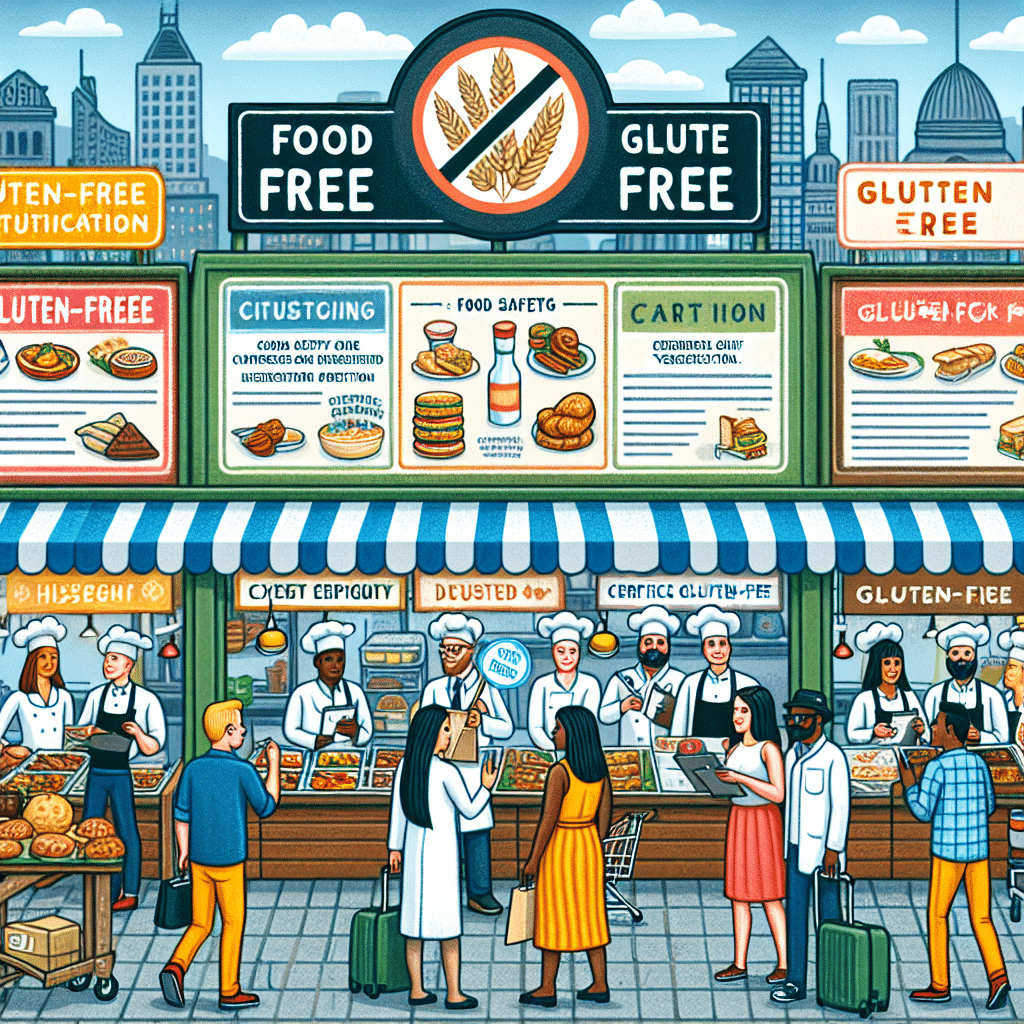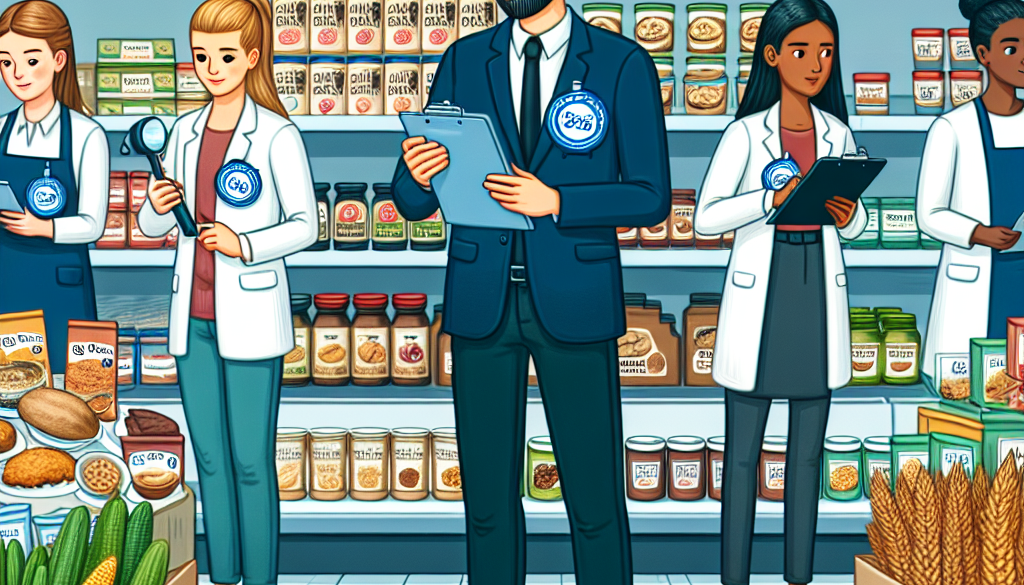How is Food Safety Support to Make the Market Gluten Free?
-
Table of Contents
- Gluten-Free Market Growth Bolstered by Food Safety Initiatives
- Understanding Gluten and Its Impact on Health
- The Role of Food Safety in the Gluten-Free Market
- Statistics Highlighting the Growth of the Gluten-Free Market
- Challenges in Maintaining Gluten-Free Standards
- Consumer Trust and the Importance of Transparency
- Conclusion: The Future of Gluten-Free Food Safety
- ETprotein: Your Trusted Source for Gluten-Free Protein Products
Gluten-Free Market Growth Bolstered by Food Safety Initiatives

The rise of gluten-free products in the market is a testament to the growing awareness and need for food safety measures that cater to individuals with gluten-related disorders. Food safety support plays a crucial role in ensuring that gluten-free products are not only available but also safe and reliable for consumers. This article delves into the various ways food safety support is making the market more accessible for gluten-free consumers.
Understanding Gluten and Its Impact on Health
Gluten is a protein found in wheat, barley, and rye, and for many people, it can lead to health issues ranging from gluten sensitivity to celiac disease, an autoimmune disorder where gluten ingestion leads to damage in the small intestine. According to the Celiac Disease Foundation, celiac disease affects 1 in 100 people worldwide, necessitating a strict gluten-free diet for those affected.
The Role of Food Safety in the Gluten-Free Market
Food safety is paramount in protecting consumers who rely on gluten-free products. Here are the key ways in which food safety supports the gluten-free market:
- Regulation and Labeling: Regulatory bodies such as the FDA in the United States have set standards for what constitutes a gluten-free product. For instance, a product must contain less than 20 parts per million (ppm) of gluten to be labeled as gluten-free. This strict labeling helps consumers make informed choices.
- Cross-Contamination Prevention: Food safety protocols are essential in preventing cross-contamination during the manufacturing process. Facilities that produce gluten-free products must adhere to stringent cleaning practices to ensure no gluten residue remains.
- Testing and Certification: Regular testing of gluten-free products is necessary to confirm their safety. Third-party certifications, such as the Gluten-Free Certification Organization (GFCO), provide additional assurance to consumers about product safety.
- Supply Chain Management: Ensuring that ingredients are sourced from gluten-free suppliers is another critical aspect of food safety. Traceability throughout the supply chain is vital to prevent any gluten contamination.
Statistics Highlighting the Growth of the Gluten-Free Market
The gluten-free market has seen significant growth in recent years. According to a report by Grand View Research, the global gluten-free products market size was valued at USD 4.3 billion in 2019 and is expected to grow at a compound annual growth rate (CAGR) of 9.2% from 2020 to 2027. This growth is partly due to the stringent food safety measures that have increased consumer confidence in gluten-free products.
Challenges in Maintaining Gluten-Free Standards
Despite the progress, there are challenges in maintaining gluten-free standards:
- Educating Food Handlers: Continuous education is necessary for those involved in the preparation and handling of gluten-free products to prevent accidental gluten exposure.
- Keeping Up with Demand: As the demand for gluten-free products increases, manufacturers must scale up production without compromising on safety standards.
- Cost Implications: Implementing and maintaining food safety measures can be costly, which may affect the pricing of gluten-free products.
Consumer Trust and the Importance of Transparency
Consumer trust is crucial in the gluten-free market. Transparency about ingredients, manufacturing processes, and testing results can help build this trust. Companies that are open about their food safety practices tend to have a more loyal customer base.
Conclusion: The Future of Gluten-Free Food Safety
The future of the gluten-free market is promising, with food safety support playing a pivotal role in its expansion. As awareness and demand continue to rise, so will the need for robust food safety measures to ensure that gluten-free products are not only available but also safe for consumption. The key takeaways include the importance of regulation and labeling, prevention of cross-contamination, rigorous testing and certification, and transparent supply chain management.
ETprotein: Your Trusted Source for Gluten-Free Protein Products
If you’re looking for high-quality gluten-free protein products, ETprotein is a company worth considering. Their extensive range of organic bulk vegan proteins, including rice, pea, and various seed proteins, are non-GMO, allergen-free, and come with the assurance of L-(+)-Ergothioneine purity over 98%. Catering to various industries, ETprotein’s products are ideal for those seeking reliable and safe gluten-free protein options.
About ETprotein:
ETprotein, a reputable protein and L-(+)-Ergothioneine (EGT) Chinese factory manufacturer and supplier, is renowned for producing, stocking, exporting, and delivering the highest quality organic bulk vegan proteins and L-(+)-Ergothioneine. They include Organic rice protein, clear rice protein, pea protein, clear pea protein, watermelon seed protein, pumpkin seed protein, sunflower seed protein, mung bean protein, peanut protein, and L-(+)-Ergothioneine EGT Pharmaceutical grade, L-(+)-Ergothioneine EGT food grade, L-(+)-Ergothioneine EGT cosmetic grade, L-(+)-Ergothioneine EGT reference grade and L-(+)-Ergothioneine EGT standard. Their offerings, characterized by a neutral taste, non-GMO, allergen-free attributes, with L-(+)-Ergothioneine purity over 98%, 99%, cater to a diverse range of industries. They serve nutraceutical, pharmaceutical, cosmeceutical, veterinary, as well as food and beverage finished product distributors, traders, and manufacturers across Europe, USA, Canada, Australia, Thailand, Japan, Korea, Brazil, and Chile, among others.
ETprotein specialization includes exporting and delivering tailor-made protein powder and finished nutritional supplements. Their extensive product range covers sectors like Food and Beverage, Sports Nutrition, Weight Management, Dietary Supplements, Health and Wellness Products, and Infant Formula, ensuring comprehensive solutions to meet all your protein needs.
As a trusted company by leading global food and beverage brands and Fortune 500 companies, ETprotein reinforces China’s reputation in the global arena. For more information or to sample their products, please contact them and email sales(at)ETprotein.com today.












